Precision CNC turret punch press operations for high-quality perforated metal fabrication, custom hole punching, and advanced stamping solutions.
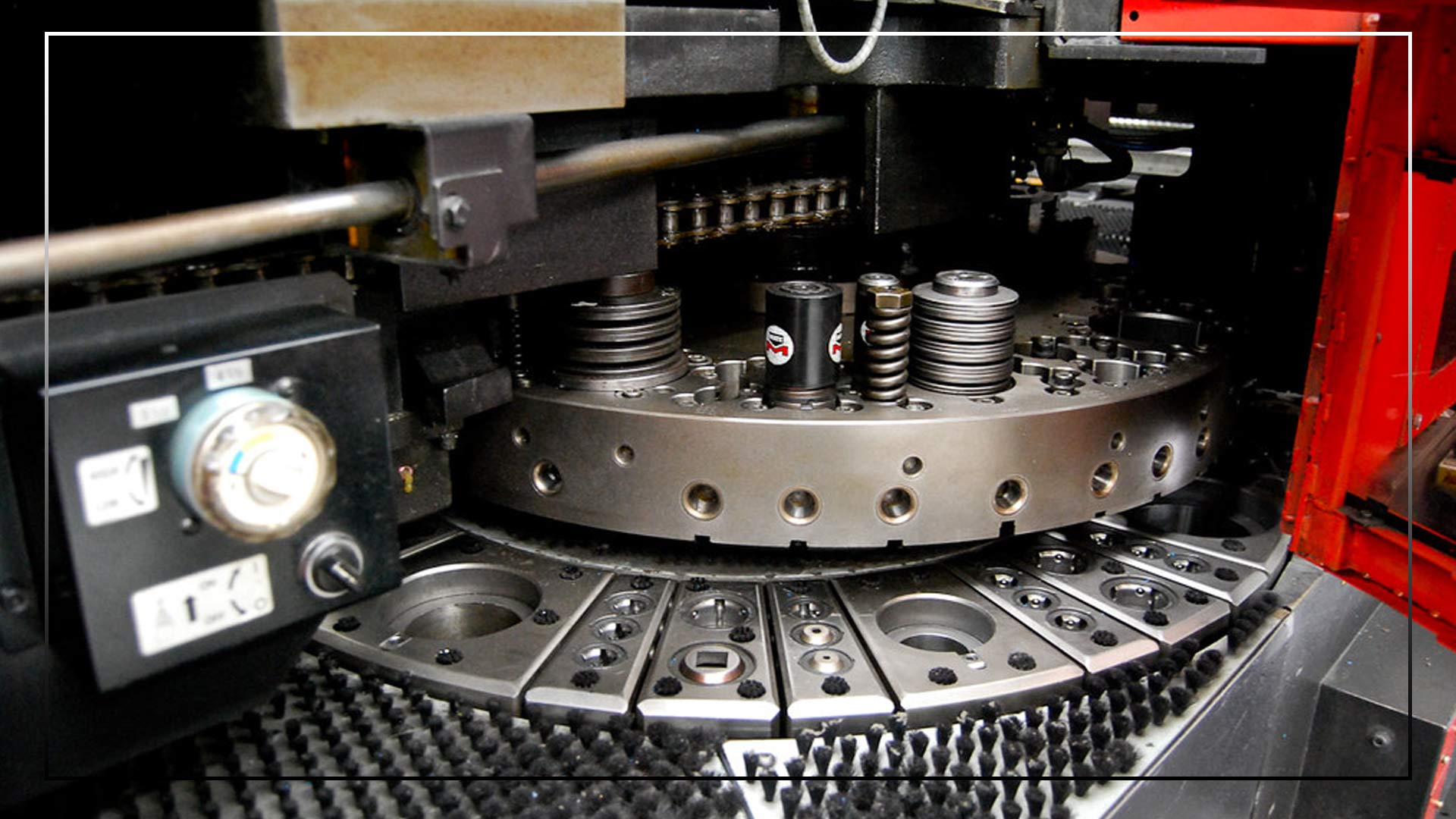
Our state-of-the-art CNC turret punch presses deliver precision hole punching, perforated metal fabrication,
and complex forming operations with unmatched accuracy and efficiency.
High-accuracy hole punching with diameters from 0.5mm to 89mm using advanced CNC turret punch technology.
Custom perforated sheets with precise hole patterns for architectural, filtration, and ventilation applications.
Advanced forming operations including louvers, embossing, countersinking, and multi-stage progressive stamping.
Expert processing of aluminum, steel, stainless steel, brass, copper, and specialized alloys up to 6mm thickness.
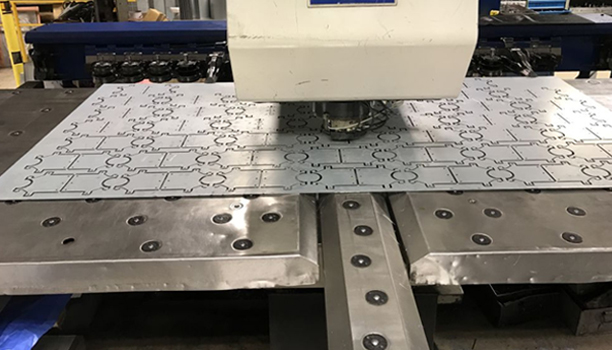
Our advanced CNC turret punch presses feature multi-tool turrets with up to 60 tool positions,
enabling rapid tool changes and complex part production in single setups. With servo-electric
drive systems and precision ball screw positioning, we achieve exceptional accuracy and repeatability.
60-position tool turrets with automatic tool selection and rapid indexing for maximum productivity.
±0.003″ positioning accuracy with servo-driven X/Y axes and linear encoder feedback.
Fully automated sheet handling, tool changes, and part unloading for lights-out production.
Our advanced equipment specifications ensure precision, reliability, and efficiency for all your metal punching requirements.
Our experienced team processes a wide range of materials with precision, from common metals to specialized alloys for demanding applications.
Excellent machinability and strength-to-weight ratio for aerospace and automotive applications.
Alloys: 6061-T6, 5052-H32, 2024-T3, 7075-T6
Thickness: 0.5mm – 6.35mm
Applications: Aerospace, Electronics, Automotive
Superior corrosion resistance and strength for medical, food processing, and marine applications.
Grades: 304, 316L, 430, 17-4PH
Thickness: 0.5mm – 5.0mm
Applications: Medical, Food Processing, Marine
High strength and formability for structural components and general manufacturing.
Grades: A36, 1018, 1045, A572
Thickness: 0.5mm – 6.35mm
Applications: Construction, Industrial, General
Excellent electrical and thermal conductivity for electrical components and decorative applications.
Alloys: C101, C110, C360, C464
Thickness: 0.5mm – 4.0mm
Applications: Electrical, Decorative, Marine
Superior strength-to-weight ratio and biocompatibility for aerospace and medical applications.
Grades: Grade 2, Ti-6Al-4V
Thickness: 0.5mm – 3.0mm
Applications: Aerospace, Medical, Chemical
High-performance materials for demanding applications requiring exceptional properties.
Materials: Inconel, Hastelloy, Monel
Thickness: 0.5mm – 2.5mm
Applications: Aerospace, Chemical, High-temp
While both processes use similar equipment, metal punching and stamping serve different purposes in sheet metal fabrication.
Understanding these differences helps choose the optimal process for your specific requirements.
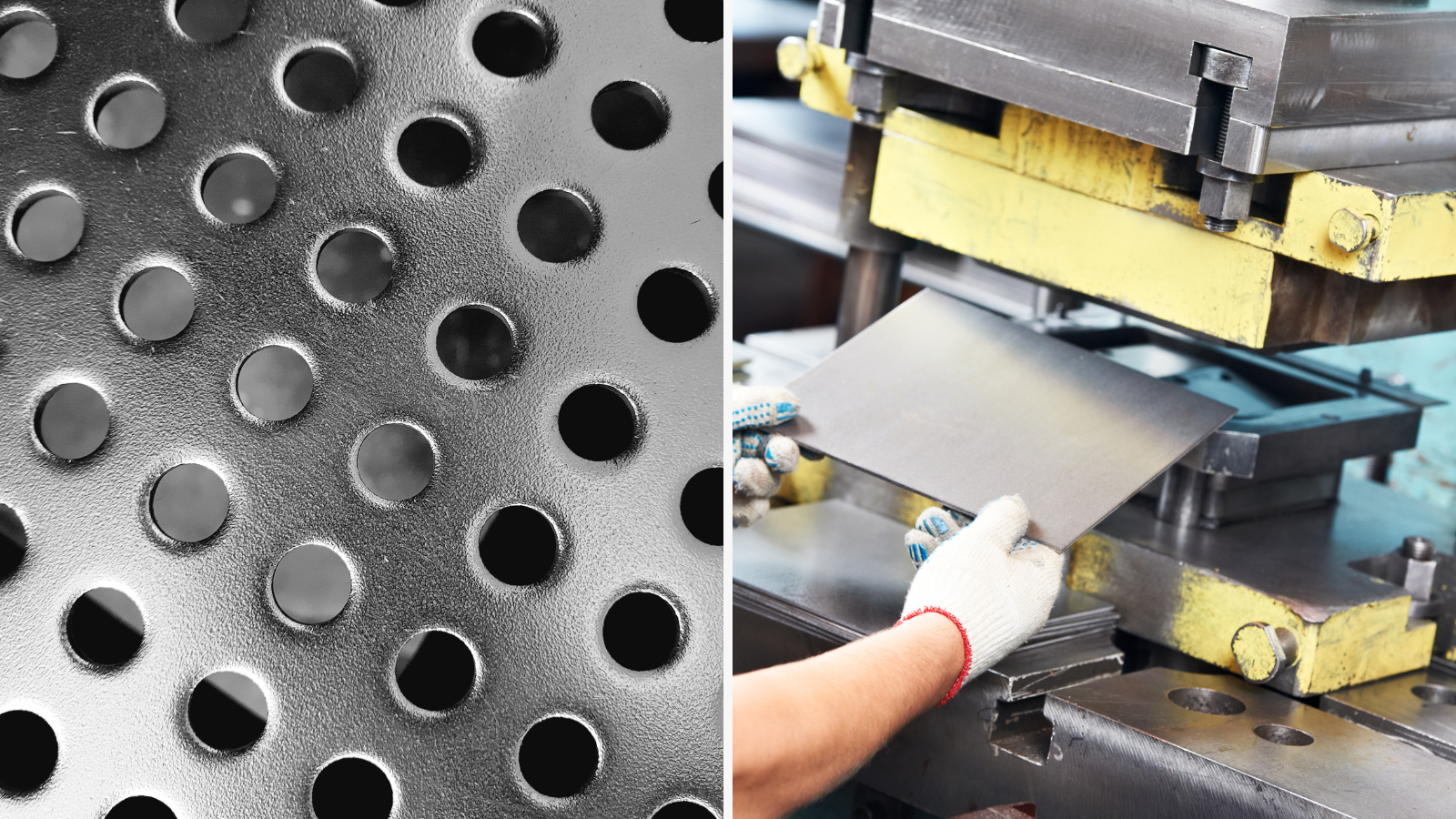
Our extensive tool library and custom die capabilities enable complex forming operations,
specialized shapes, and high-volume production efficiency.
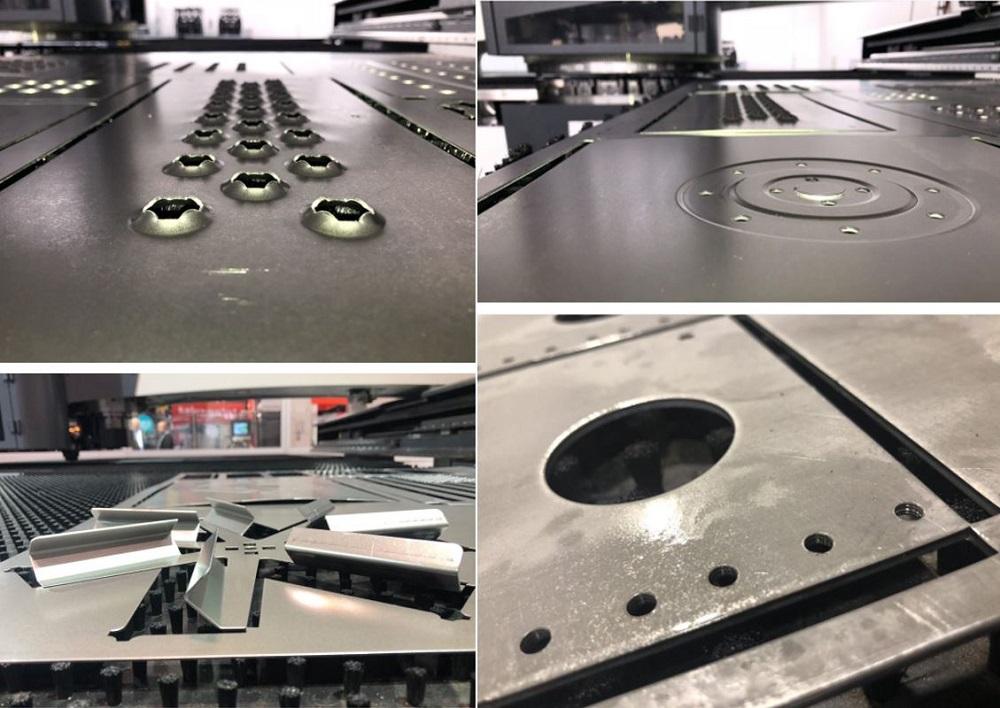
Round, square, rectangular, and shaped punches from 0.5mm to 89mm diameter for standard hole patterns.
Louver tools, countersink punches, embossing dies, and thread forming tools for complex features.
In-house tool design and manufacturing for unique shapes, complex geometries, and specialized applications.
Multi-stage progressive dies for high-volume production of complex parts with multiple operations.
Our metal punching services support diverse industries with specialized requirements for precision,
quality, and reliability in critical applications.
Critical components requiring AS9100D compliance, material traceability, and exceptional quality control.
High-volume production parts with IATF 16949 compliance and statistical process control.
Precision enclosures, EMI shields, and ventilation panels for electronic equipment.
Biocompatible materials and clean room manufacturing for medical device components.
Decorative perforated panels, sunshades, and acoustic solutions for modern building design.
Heavy-duty components for machinery, equipment housing, and industrial filtration systems.
Our precision perforated metal fabrication creates custom hole patterns for filtration,
ventilation, acoustic control, and decorative applications across multiple industries.
Round, square, slotted, and hexagonal hole patterns with precise spacing and open area percentages.
Decorative patterns, logos, and artistic designs created from your specifications or artwork.
Optimized for airflow, acoustic performance, light transmission, or structural strength.
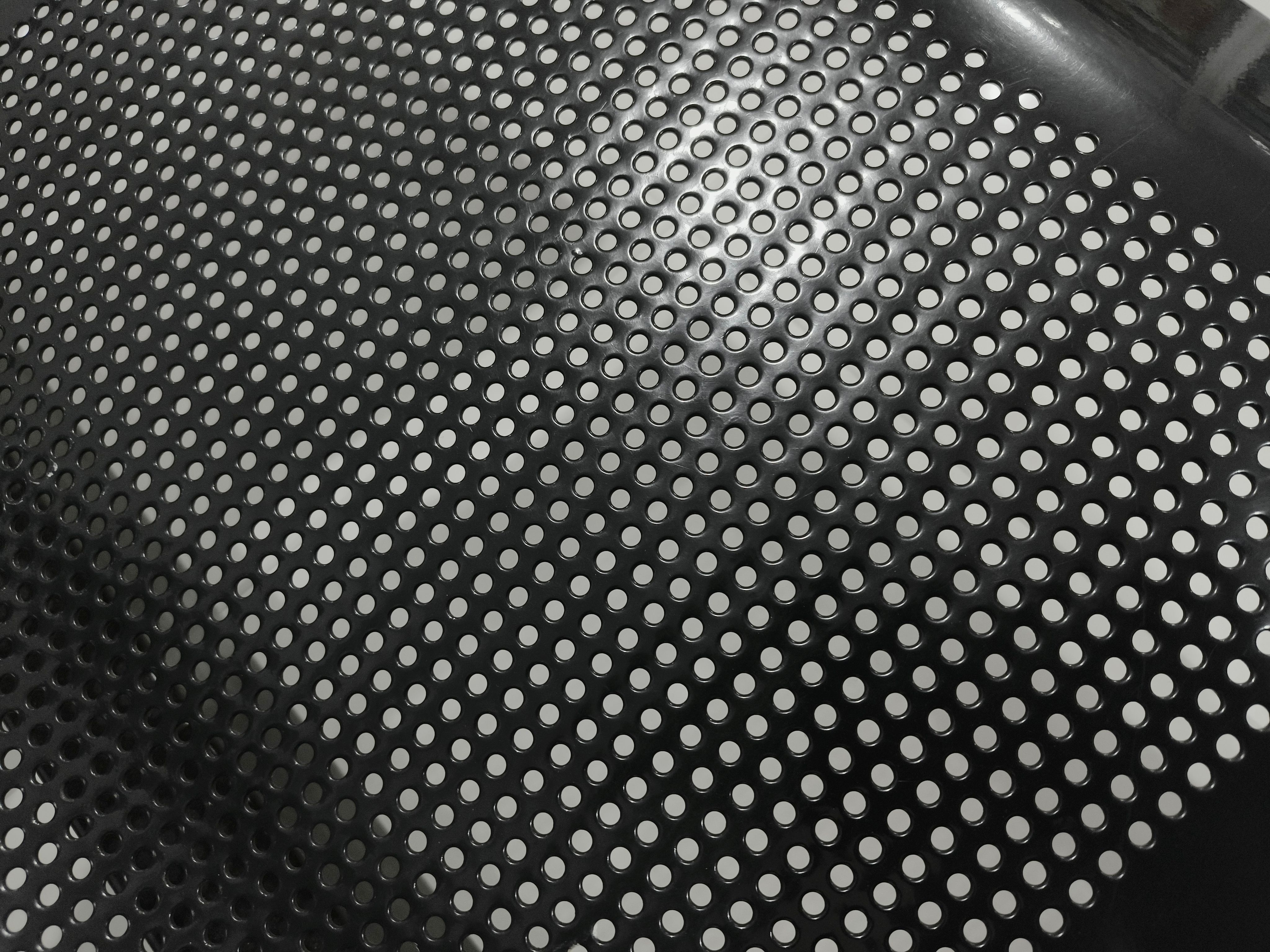
Our comprehensive quality management system ensures every punched part meets or exceeds your specifications
through rigorous inspection and process control.
Complete dimensional verification and documentation for initial production approval.
Real-time monitoring and control of critical dimensions and process parameters.
CMM inspection, optical measurement, and surface roughness analysis capabilities.
Complete inspection reports, material certifications, and traceability documentation.
Follow these design guidelines to ensure manufacturability, cost-effectiveness, and quality in your punched metal parts.
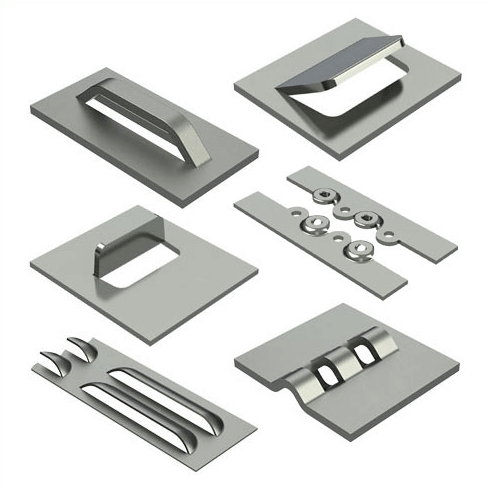
Center-to-center distance should be at least 2 times the material thickness for standard holes.
Minimum distance from hole edge to part edge should be 1.5 times material thickness.
Minimum hole diameter should equal material thickness; maximum depends on material and tooling.
Consider material grain direction for optimal edge quality and tool life.
Use appropriate punch and die clearances based on material type and thickness.
Standardize hole sizes and patterns to reduce tooling costs and setup time.
Specify required edge quality, burr requirements, and dimensional tolerances.
Consider tooling requirements and complexity when planning production schedules.
Get answers to common questions about our metal punching services, capabilities, and processes.
Metal punching creates holes and openings by removing material through a shearing process, while metal stamping forms shapes and features by displacing material. Punching is ideal for perforated patterns and ventilation grilles, while stamping is better for creating 3D geometries and complex forms. Both processes can be combined in progressive operations for complex parts.
Our CNC turret punch presses can process a wide range of materials including aluminum alloys (6061, 5052, 7075), stainless steel (304, 316L, 430), carbon steel (A36, 1018, 1045), brass, copper, titanium, and specialty alloys. Material thickness ranges from 0.5mm to 6.35mm depending on the specific alloy and application requirements.
Our CNC turret punch presses achieve positioning accuracy of ±0.003″ (±0.08mm) and repeatability of ±0.001″ (±0.025mm). Hole diameter tolerances typically range from ±0.002″ to ±0.005″ depending on hole size, material thickness, and tooling used. Critical dimensions can be held to tighter tolerances with appropriate tooling and process control.
The minimum hole size depends on material thickness and type. As a general rule, the minimum hole diameter should equal the material thickness. For example, in 1mm thick aluminum, the minimum hole diameter would be 1mm. However, specialized tooling can achieve smaller holes in certain materials, down to approximately 0.5mm in thin sheets.
Optimal hole spacing (center-to-center) should be at least 2 times the material thickness to prevent material distortion and ensure clean punching. Edge distance should be minimum 1.5 times the material thickness to prevent edge tearing. These guidelines may vary based on material properties, hole size, and specific application requirements.
We offer comprehensive secondary operations including deburring, edge finishing, bending, welding, powder coating, anodizing, and assembly services. These operations can be performed in-house or through our qualified supplier network to provide complete turnkey solutions for your punched metal parts.
We maintain ISO 9001:2015 quality management certification, AS9100D aerospace quality standard, and IATF 16949 automotive quality certification. Our quality system includes first article inspection, statistical process control, material traceability, and comprehensive documentation to meet the most demanding industry requirements.
Pricing is based on several factors including material type and thickness, part complexity, hole count and size, production quantity, tolerances, and secondary operations. We provide detailed quotes within 24 hours based on your drawings or CAD files. Volume discounts are available for larger quantities, and we offer competitive pricing for both prototype and production runs.